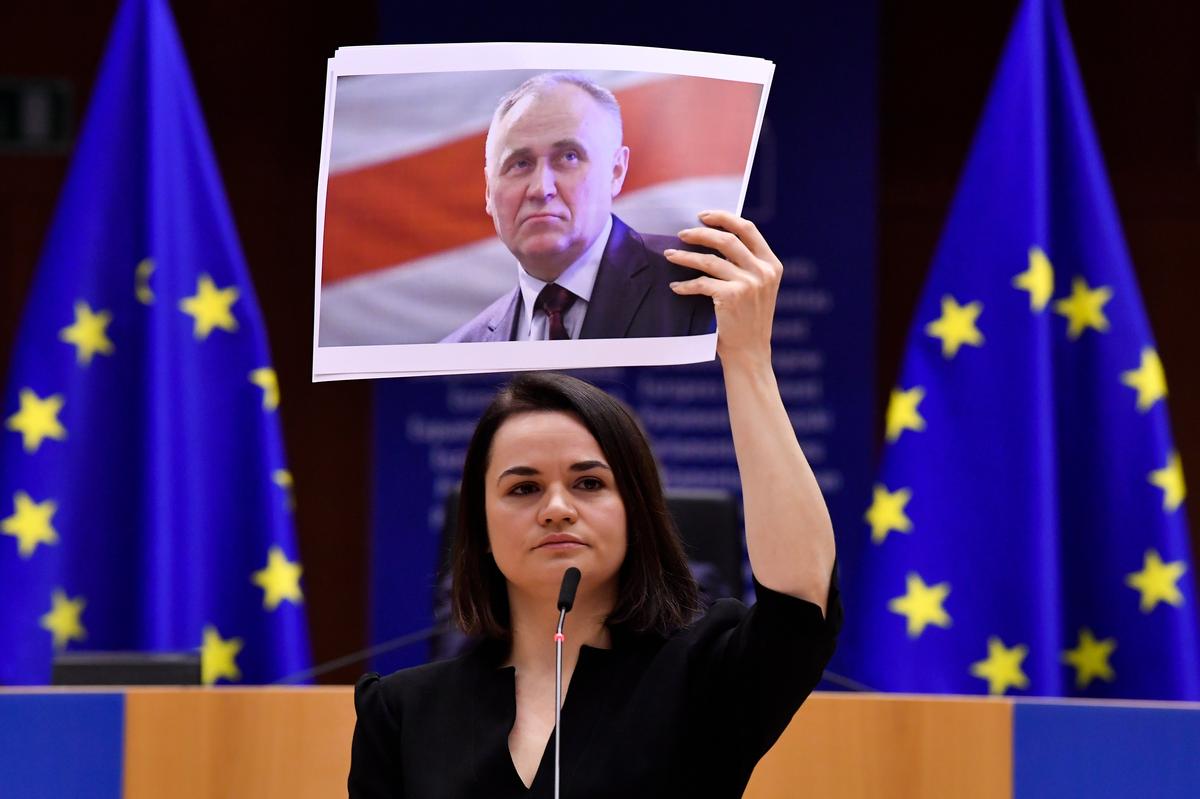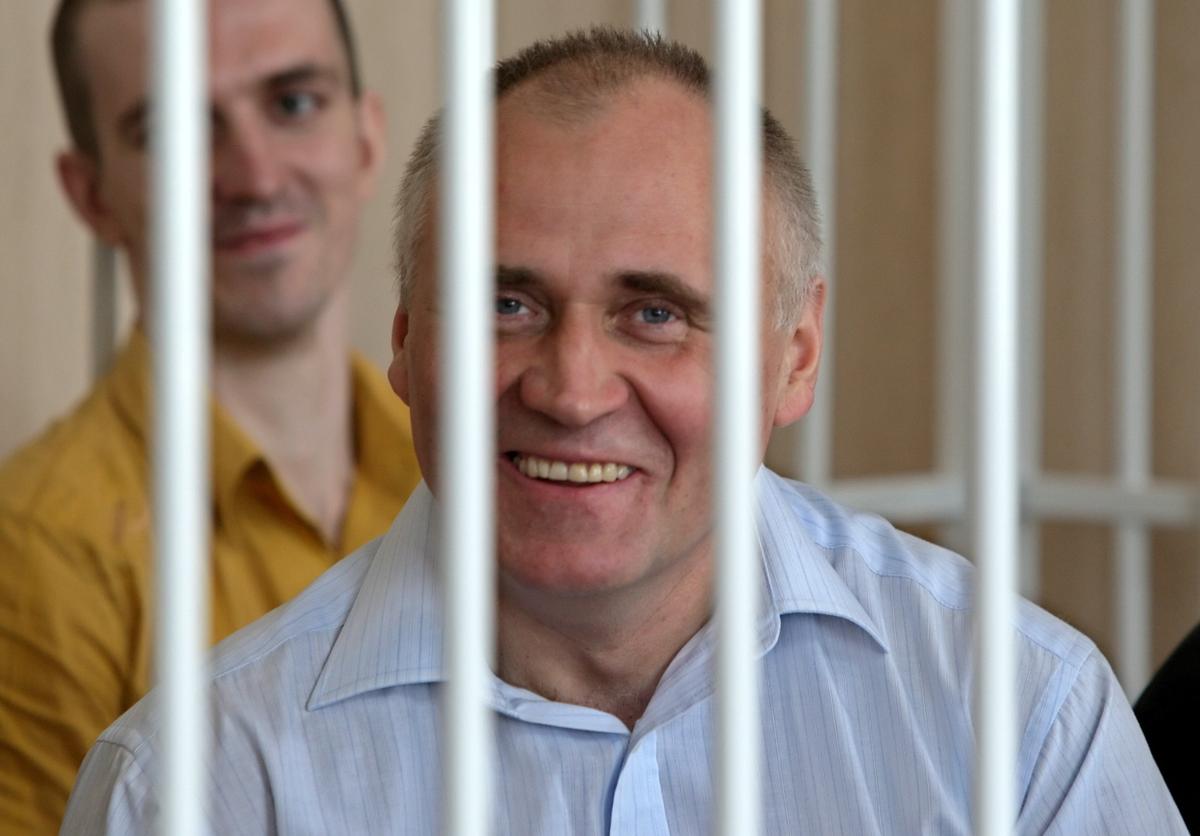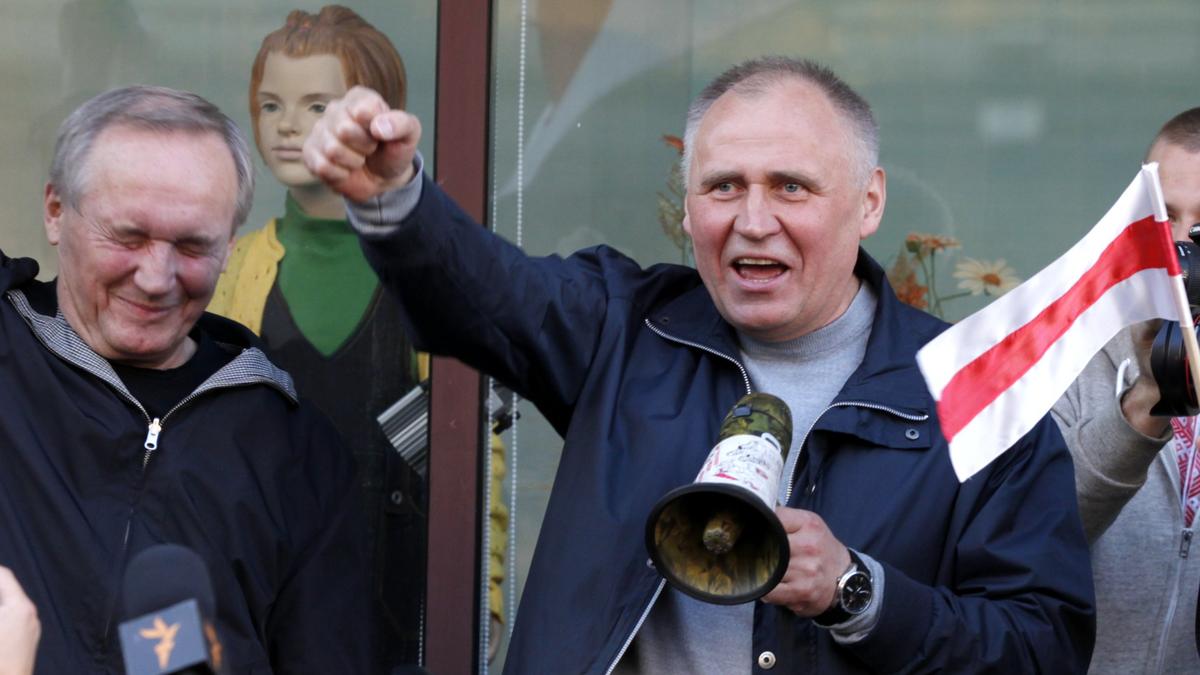Though it was three decades ago now, I can still vividly recall Mikalai Statkevich’s first public appearance in the spring of 1995. Alexander Lukashenko had been in power for less than a year, and was about to hold his first referendum, one that would place the Russian language on an equal footing with Belarusian, abolish the country’s national symbols, and begin the process of dismantling the country’s parliamentary system.
Two months before the referendum, Narodnaya Gazeta published a letter from a reader called Zdislav Valnerovich, a resident of the Hrodna region who warned that Lukashenko would have to “step over my blood, and the blood of hundreds, thousands, millions like me” in order to push his changes through.
The reaction to the letter was furious and immediate, and Lukashenko condemned it as a “forgery paid for with dollars”. Within a week, he had dismissed the newspaper’s editor-in-chief, Iosif Syaredzich, by presidential decree, despite having no authority to do so. Though within just a few years Belarusians would be accustomed to the idea that their president saw himself as above the law, at the time this was still a deeply shocking turn of events.
Despite combing the entire Hrodna region on Lukashenko’s orders, however, the security services were unable to locate the person who wrote the letter. It was at that point that Syaredzich called a press conference at which he introduced a young woman by the name of Rehina Zimnitskaya as the true author of the letter. Zimnitskaya, a PE teacher who had contacted Syaredzich to apologise after learning of his dismissal, had agreed to appear alongside the former editor before the press.
It was at that point that a man with an unmistakably military bearing stepped forward, introduced himself as a representative of the Belarusian Association of Military Officers, and vowed on its behalf to guarantee the safety of both Syaredzich and Zimnitskaya.
That man was Mikalai Statkevich, the only Belarusian officer who openly condemned the August 1991 coup in Moscow, and who, earlier that same year, left the Communist Party in protest after Soviet tanks rolled into the Lithuanian capital Vilnius to violently put down pro-independence demonstrations.
Impressed by his brave act, the reporters present all felt that they’d be hearing more from this man, and they were not mistaken. Statkevich was soon a household name in Belarus and quite organically became a leader of the nascent anti-Lukashenko protest movement.

Belarusian opposition leader Sviatlana Tsikhanouskaya holds up a picture of Statkevich after accepting the 2020 Sakharov Prize at the European Parliament in Brussels, 16 December 2020. Photo: EPA / Olivier Hoslet
His effect on protests was electric, and poorly organised rallies would suddenly acquire direction and a sense of purpose the moment Statkevich turned up on the scene. Never more at home than when leading street protests, Statkevich seemed to become braver and braver before our eyes as the Lukashenko regime became more and more degenerate.
Though he had been subjected to countless arrests and too many spells in police custody to keep track of, it wasn’t until 2004 that Statkevich served his first real prison sentence, after leading protests against Lukashenko’s latest staged referendum, in which the constitutionally mandated two-term limit on serving as president was scrapped.
Statkevich was ordered to perform three years of correctional labour, having been found guilty of “organising actions that grossly violate public order” — the very charge used by the regime to convict thousands of Belarusians following the 2020-2021 anti-Lukashenko protests.
It was at that time, before serving his first serious sentence, that Statkevich first ruled out going into exile simply to avoid prison time. “I will not betray my ideals. My ideal is a democratic and free Belarus,” he said.
“I want to talk about the economy,” Statkevich said, before looking straight into the camera, and saying: “Sasha, return what you stole.”
Statkevich was given a second custodial sentence in 2010, after he ran for the presidency against Lukashenko. I can remember the televised debates very clearly, each of which was attended by all the candidates except Lukashenko himself, of course.
Saying exactly what they thought of Lukashenko — for which they all ended up in prison sooner or later — each candidate was eager to take advantage of the rare chance they were accorded to speak on live TV. The increasingly desperate hosts, unable to prevent the outspoken group from loudly attacking the regime, finally asked the candidates if anybody would like to talk about the economy. “I want to talk about the economy,” Statkevich said, before looking straight into the camera, and saying: “Sasha, return what you stole.”
The day after the election, in a massive purge of Lukashenko’s political enemies, Statkevich was arrested, along with around a thousand anti-Lukashenko protesters, including me. I remember vividly how Mikalai and I ended up standing side by side at a detention centre , facing the wall. Though we were not allowed to speak, at one moment he tugged at my sleeve and I turned my head to see him holding out a piece of candy for me, almost certainly his last.

Mikalai Statkevich appears behind bars during a court hearing in Minsk, Belarus, 26 May 2011. Photo: EPA / Tatyana Zenkovich
In 2010 was charged with “orchestrating mass disorder”, a far graver charge than those he had faced in the past, for which he was sentenced to five years in prison. Though he was released in 2015, his criminal record barred him from standing for president again.
In 2020, Statkevich was seized by armed men in broad daylight and dragged from the car his wife was driving with such brutality that she reported the incident as a kidnapping. Statkevich subsequently turned up at the same pretrial detention centre where he had once offered me his last piece of candy a decade earlier.
After 30 days in police custody, Statkevich was charged with “orchestrating mass disorder”, despite the fact that the real mass disorder provoked by yet another stolen election was still more than a month away. This time Statkevich was given 14 years in prison.
When you are driven under guard to the national border and only released into a foreign country, that is not freedom but deportation.
The last letter I received from Mikalai came in early February 2023, after which followed two-and-a-half years of complete silence. While news of other political prisoners would occasionally seep out of Belarus’s gulag via former inmates, absolutely nothing was heard about Statkevich, who was kept in solitary confinement in a high-security prison for repeat offenders. Indeed, nobody knew if he was even still alive until 11 September, when he was suddenly transferred, along with some 50 other Belarusian prisoners, to the Lithuanian border.
That day, much of the media reported that Belarus had pardoned and released 52 political prisoners — a misleading headline. When you are driven under guard to the national border and only released into a foreign country, that is not freedom but deportation.
Statkevich has always said he would never leave Belarus. Upon his arrival at Minsk railway station following his release from prison in 2015, he told the crowd that had gathered to greet him: “I will not go anywhere else. We will make this country normal and free.” When asked if he planned to return to politics, he replied: “I would not call what is happening politics. I am returning to the struggle.”
It should therefore come as no surprise that when the prisoner transport stopped in no-man’s-land last week, Mikalai simply forced open the bus door and walked back into Belarus, telling a friend: “I alone decide how I’ll lead my life. Who is Lukashenko to tell me where I should live? Belarus is my country, and I’m staying here.”

